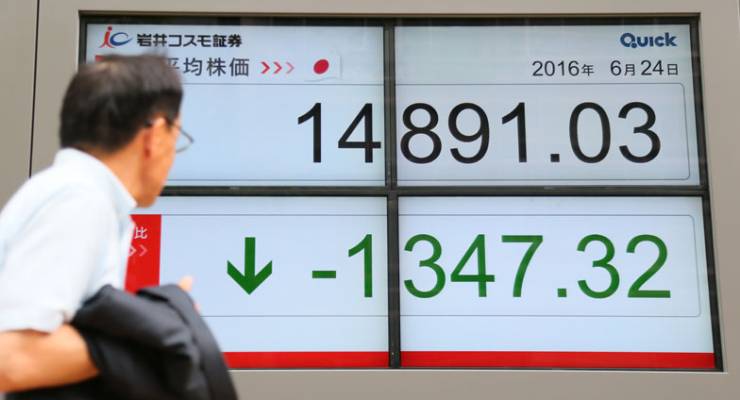
Is the sharemarket about to crash? I’m always looking for evidence and felt like I was onto a sign last week: a story in Bloomberg about a small town in the northern Chinese “rustbelt”. Things are dire in Tieling: wages are being halved, businesses are failing, people are fleeing.
It made me worry about China. I’m already hyper alert to any sound that the giant edifice might be starting to crumble. A run of growth like China’s is entirely without precedent, and that makes me worry. The Bloomberg article made me worry more.
I fear a global crash that starts in China and takes down most of the world’s financial markets and economies. But maybe I’m being irrational.
So I try to balance my natural tendency to pessimism. To remind myself that major global crashes are rare. To remember that just because the GFC is imprinted on my brain, that doesn’t mean another one is lurking round every corner.
Science says this second approach is better. I am, experts think, over-reacting to the chance of a major crash. That’s the lesson of new research by the United States National Bureau of Economic Research. It finds investors strongly over-predict disaster. Investors predict on average a 19% chance of a major crash in the next six months, despite the fact such a crash has been experienced only twice in the last 100 years.
“Over the 1989-2015 period, the mean and median probability assessments of a one-day crash were 19% and 10%, respectively,” write the researchers, William Goetzmann, Robert Shiller and Dasol Kim, from Yale and Case Western Reserve Universities. The kind of crash they are talking about is a one-day fall of at least 12%.
Crash: now available
Why do investors see disaster lurking round every corner? The big reason is the availability heuristic — one of the most reliable findings in the blossoming field of behavioural economics. The availability heuristic says people will judge an outcome more probable if they can bring it to mind, i.e. if they can imagine it.
The classic study of the heuristic works like this: ask some people to imagine a certain presidential candidate as president, then ask them to estimate the probability of that person being elected. Those people will assign a higher probability of election than another group who are asked to assign probability without first imagining the outcome.
Why are crashes more “available” to our minds than booms? Partly it is because of another quirk of the human mind — we are loss averse. That aversion naturally drives the human mind. But it is elevated by the media, which feeds on the tendency of readers to seek out information about doom and disasters.
The researchers looked closely at The Wall Street Journal and found it influenced the probabilities assigned to a crash by the investors in their survey. They write:
“We find evidence that the financial press mediates investor crash beliefs asymmetrically. Articles with ‘crash’ related terms are associated with higher crash probability assessments, but articles with ‘boom’ related terms are not.”
They also found crash stories tended to be front-page news in The Wall Street Journal, while boom stories were relegated to the inside pages.
Back to boom?
The effect of the GFC’s sharemarket crashes and financial meltdowns on our perceptions of their frequency may be why, in the last eight years, the ASX 200 Index has not risen above 6000 — a level it held between April 2007 and January 2008.
On the other hand, there may yet be good reasons for lingering nervousness about the future of Australian companies.
Australia has spent 25 years without a real recession. Just as the risks of a major one-day stock crash or a global financial meltdown are very salient right now, the risks of a local recession have receded in Aussie brains.
Many CEOs were not in the workforce during the last real Australian downturn, in the early 1990s. Our Treasurer was in his early 20s and barely out of university. Whether Australia is ready for a recession is not clear. But we should be — the background probability of a recession remains high. They are common in the history of Australia and common in the history of other countries. If the availability heuristic lulls us into a false sense of security, it will be far worse than being lulled into a false sense of fear about the sharemarket.








With bonds returning close to zero and property ready to slump, where will the money go other than stocks?
That does not mean that stocks are worth more, only that they may be the best store of value.
Jason, another factor is that crashes usually occur over a 24-36 hour period (with ructions that extend for a period) whereas booms occur over a period of months and years. 1 day falls, $trillions lost, big headlines, versus slow or steady accumulation.
Like a terrorist act or a natural disaster that kills hundreds, while thousands get killed every year by motor vehicles.
Good point Testo. The time to get out of the market may be a few quarters after the next recession and house prices getting slashed.
I think that is was Gulbekian who, when asked how he had so much money as a ‘financier’, replied “By selling too soon”.